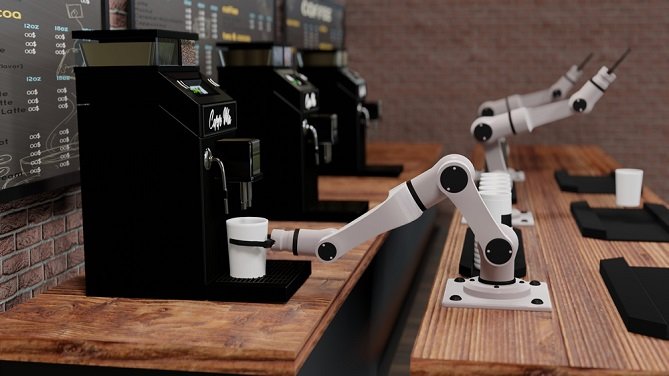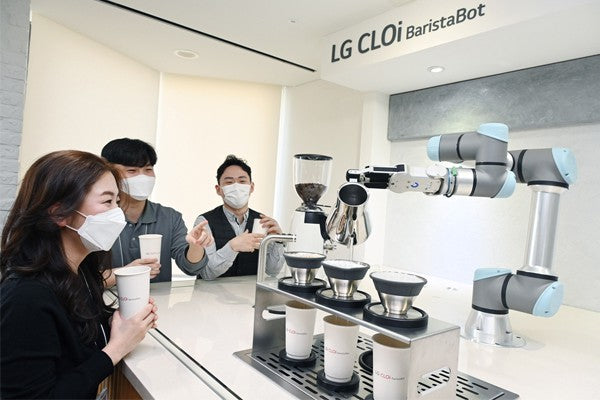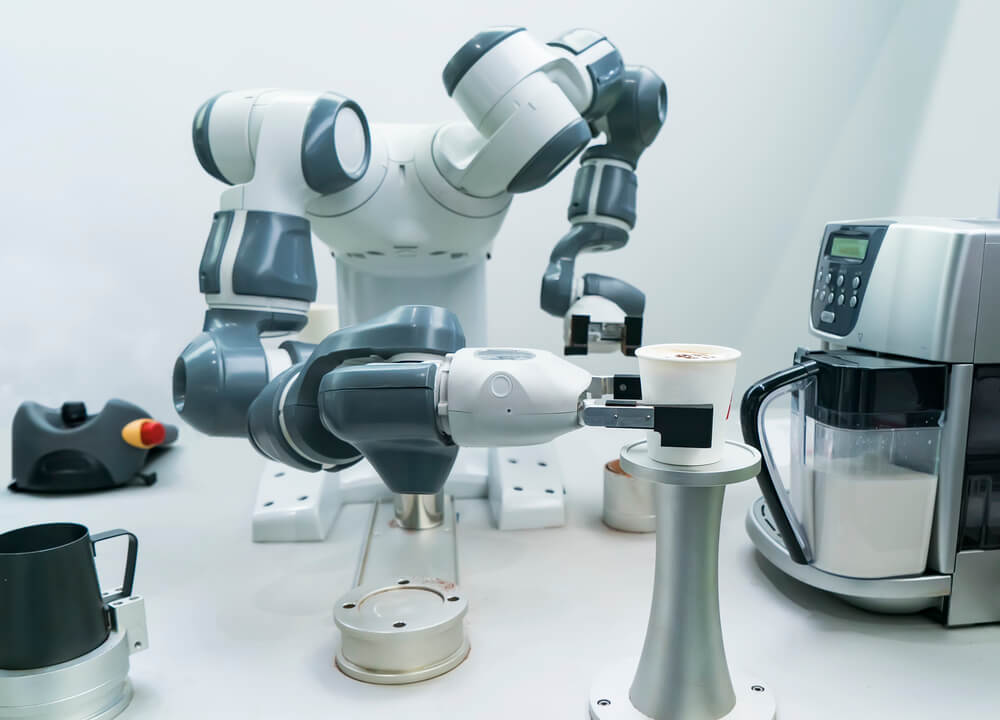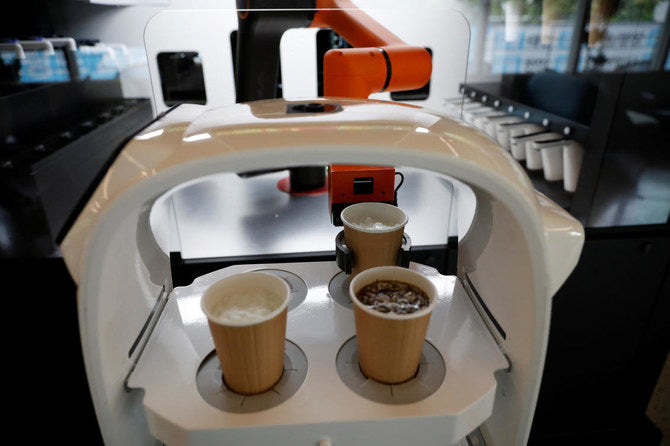In a world where automation and technology are transforming various industries, it was only a matter of time before the beloved coffee shop experience underwent a technological makeover. Enter the era of robotic baristas, a phenomenon that is revolutionizing coffee shops and drastically reducing wait times for caffeine-craving patrons. In this article, we will explore the exciting world of robotic baristas, their impact on the coffee industry, and the potential benefits and challenges they bring to the table.
The Rise of Robotic Baristas
The concept of robotic baristas might seem like something out of a science fiction novel, but it has quickly become a reality in the world of coffee. Robotic baristas are automated machines designed to handle various coffee preparation tasks, from grinding and brewing beans to pouring and serving the perfect cup of coffee. These machines are not only efficient but also incredibly precise, capable of consistently delivering high-quality coffee with minimal human intervention.
The trend began to gain traction in the late 2010s, with tech companies and coffee shop chains investing in developing and deploying these automated systems. Fast forward to today, and you can find robotic baristas in coffee shops around the world, from bustling city centers to quaint neighborhoods.

How Robotic Baristas Work
Robotic baristas are equipped with advanced technology and sensors that allow them to perform a wide range of coffee-related tasks. Here's a simplified breakdown of how these machines work:
Order Placement: Customers can place their coffee orders through a user-friendly touchscreen interface or a mobile app linked to the robotic barista. This technology allows for precise customization, ensuring each cup of coffee meets individual preferences.
Bean Selection and Grinding: Once an order is placed, the robotic barista selects the appropriate coffee beans from a hopper, grinds them to the desired coarseness, and dispenses the grounds into a portafilter.
Brewing: The machine then uses a precisely calibrated water temperature and pressure to brew the coffee, following the specific brewing method associated with the selected coffee type (e.g., espresso, pour-over, French press).
Milk Frothing: For beverages like lattes and cappuccinos, robotic baristas are often equipped with milk frothing systems that steam and froth milk to perfection.
Pouring and Serving: Once the coffee is ready, the robotic arm carefully pours it into a cup, ensuring accuracy and presentation. The finished product is then served to the waiting customer.
Cleaning and Maintenance: Robotic baristas often have self-cleaning mechanisms, ensuring that the equipment remains sanitary and efficient. Human technicians are still required for periodic maintenance and troubleshooting.

Benefits of Robotic Baristas
The adoption of robotic baristas brings forth several compelling benefits for both coffee shop owners and customers:
Consistency: Robotic baristas can consistently produce high-quality coffee, eliminating the variability that can occur with human baristas.
Speed: Perhaps the most noticeable advantage is the speed at which robotic baristas operate. They can process orders much faster than their human counterparts, reducing wait times and enhancing the overall customer experience.
Customization: Customers can easily customize their coffee orders using the touchscreen interface or mobile app, ensuring their preferences are met precisely.
Efficiency: These machines can work tirelessly without breaks, resulting in improved efficiency and potentially reduced labor costs for coffee shop owners.
Reduced Human Error: Robotic baristas minimize the risk of human error in coffee preparation, resulting in fewer wasted ingredients and improved consistency.
24/7 Service: Some coffee shops are exploring the possibility of offering 24/7 service thanks to robotic baristas, catering to customers at all hours.

Challenges and Considerations
While the rise of robotic baristas is exciting, it also raises several important considerations and challenges:
Job Displacement: The automation of coffee preparation may lead to concerns about job displacement in the coffee shop industry. Baristas are not just coffee makers; they often serve as the face of the establishment, providing personalized service and human interaction that machines cannot replicate.
Technical Issues: Like any technology, robotic baristas can experience technical glitches or malfunctions, which may require skilled technicians to resolve promptly.
Maintenance Costs: While robotic baristas can reduce labor costs, they come with their own set of expenses related to maintenance and repair.
Loss of Craftsmanship: Coffee-making is often seen as an art form, with skilled baristas carefully crafting each cup. The rise of automation may lead to a loss of the craftsmanship and personal touch associated with coffee preparation.
Customer Adaptation: Some customers may prefer the traditional coffee shop experience and may be hesitant to embrace automation fully.

The Future of Coffee Shops
Robotic baristas are undoubtedly changing the landscape of coffee shops, offering speed, consistency, and customization like never before. While the adoption of these machines may lead to job displacement concerns, it is essential to recognize that they can coexist with human baristas. In many cases, human staff members are still needed for customer service, maintenance, and other essential tasks.
The future of coffee shops may involve a blend of automation and human expertise. Robotic baristas can handle the high-volume, repetitive tasks, allowing human baristas to focus on creating unique coffee experiences, interacting with customers, and offering their expertise in more specialized areas of coffee preparation.
As technology continues to advance, we can expect robotic baristas to become even more sophisticated, further improving the efficiency and quality of coffee preparation. Additionally, coffee shop owners will need to strike a balance between embracing automation and preserving the unique aspects of their establishments that draw customers in.
Robotic baristas are reshaping the coffee shop industry, offering a tantalizing glimpse into the future of coffee preparation. While these machines undeniably bring significant benefits, they also pose challenges that require thoughtful consideration. As coffee shop owners and customers adapt to this evolving landscape, the key will be finding a harmonious balance between the efficiency of automation and the personal touch of human interaction. One thing is clear: the aroma of freshly brewed coffee, whether made by a machine or a skilled barista, will continue to be a source of comfort and delight for coffee lovers worldwide.








